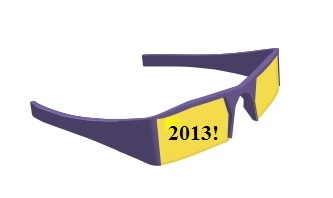 Target has been greatly expanding its mcommerce offerings and is now focusing on specific demographics.
Target has been greatly expanding its mcommerce offerings and is now focusing on specific demographics.
After a highly successful Christmas shopping season, Target is now taking its mobile marketing in more specific directions as it places its focus on the Hispanic community for its 2013 advertising and promotions.
It will be using certain cutting edge advertising techniques to reach these smartphone using consumers.
Even before the holiday shopping season has come to a close, with after Christmas sales still heavily sought, the retail giant has confirmed its intentions to work with LatinWorks in order to expand its U.S. Hispanic account, following an extensive review process that was performed over a three month period.
This mobile marketing effort is a strategic effort to improve appeal to the Hispanic community.
According to the Target senior group manager of public relations, Katie Boylan, “LatinWorks has been selected and will be our primary strategic partner for Hispanic marketing.” The retailer has been working to reach out to the Hispanic community for some time, and has been improving its position in that marketplace. However, it is hoping that by partnering with LatinWorks, it will be able to truly excel.
According to the latest data from the mobile industry, the Hispanic and Black populations are some of the communities in which smartphone penetration is at its greatest. This makes the Hispanic community one of the most important places for any mobile marketing campaign to place its focus.
A report from Portada that was released in June showed that the smartphone penetration in the United States had been approaching 50 percent at that time. It expressed that “it’s no surprise that the adoption of mobile shopping tools has been rapid.”
The Hispanic community has been a part of this adoption trend to a much greater extent than Caucasians in the country. In fact, 16 percent of Hispanic shoppers use their smartphones or tablets for making a purchase, when compared to only 10 percent of Caucasian consumers. Target has seen this as a very important mobile marketing opportunity, and it is one that they do not intend to miss.

 Augmented reality revolution may kick into full swing in 2013
Augmented reality revolution may kick into full swing in 2013